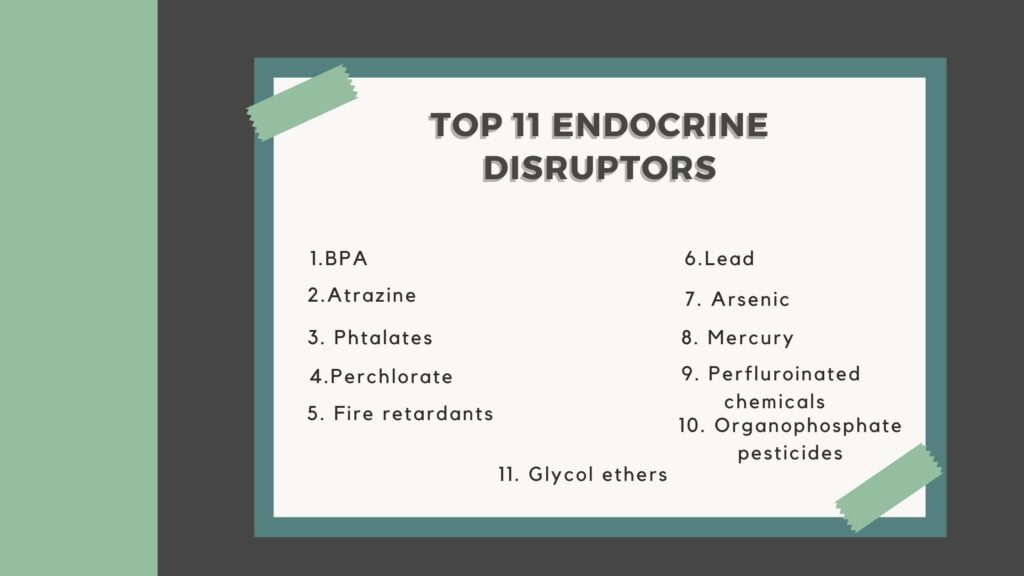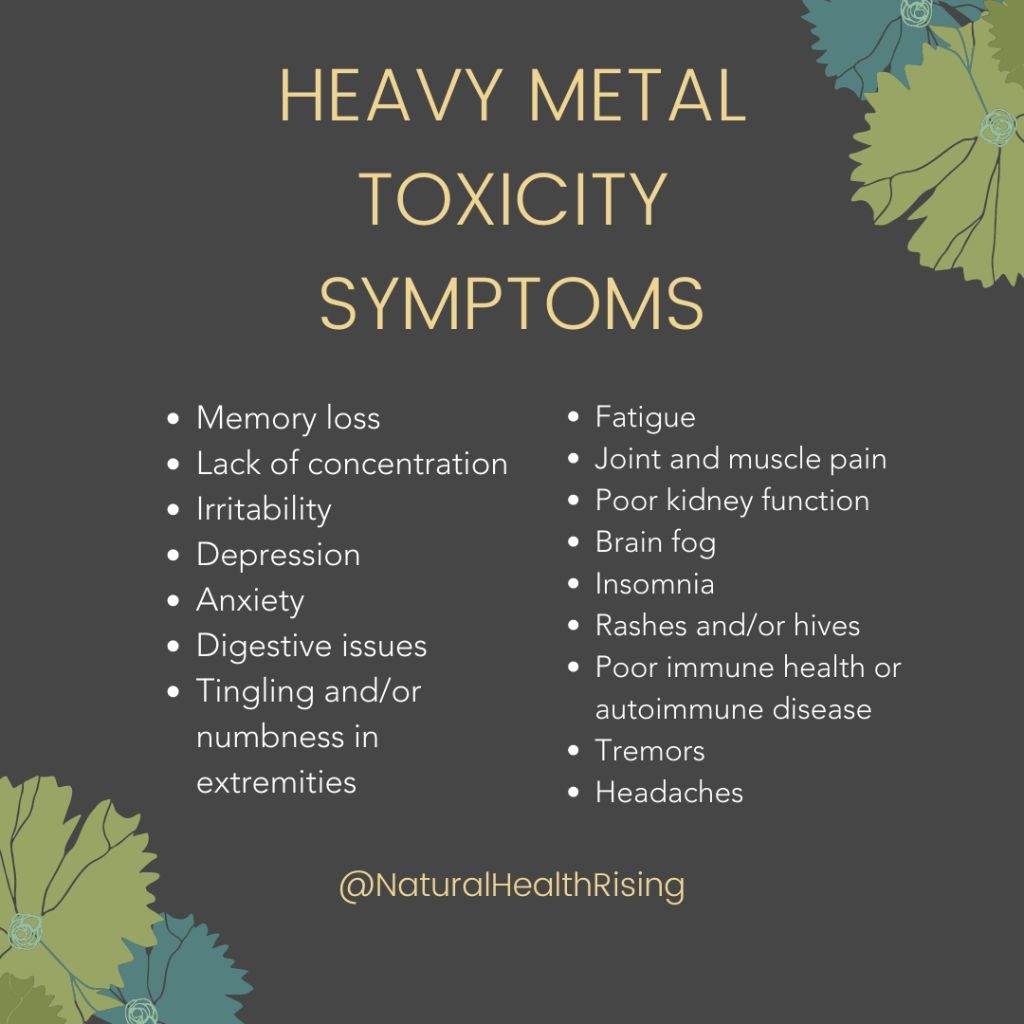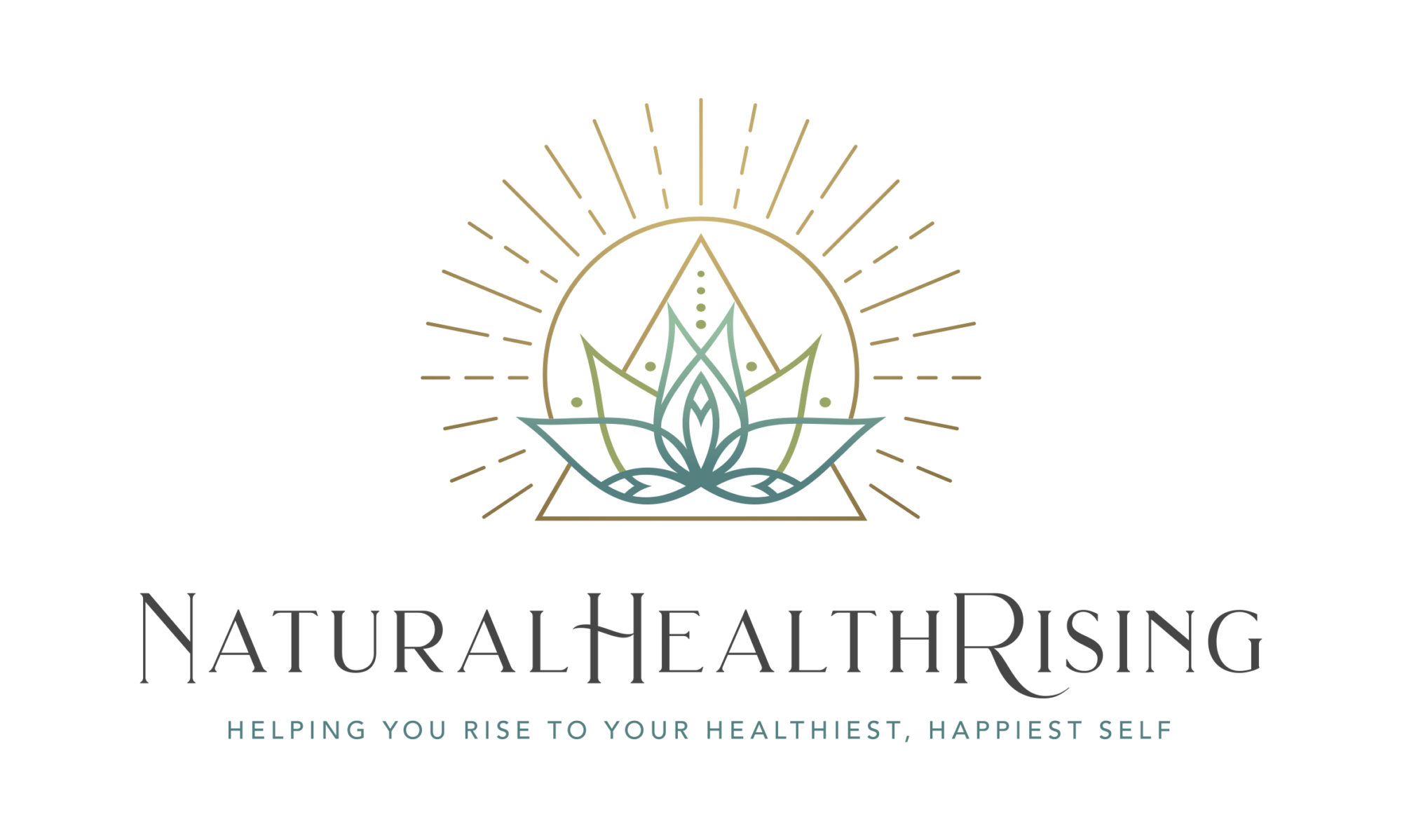
Endocrine disruptors are chemicals that can mimic, block, or disrupt your natural hormones, throwing your hormones out of balance. As a result, this may lead to infertility, cancer, autoimmunity, and other diseases.
Here are the top 11 worst EDC’s (endocrine-disrupting chemicals) and tips you can follow to avoid them.
- BPA
- Atrazine
- Phthalates
- Perchlorate
- Fire Retardants
- Lead
- Arsenic
- Mercury
- Perfluorinated Chemicals
- Organophosphate Pesticides
- Glycol Ethers
1. BPA
This chemical leads to breast cancer, infertility, obesity, and early puberty. BPA is found in plastic (think plastic water bottles, Tupperware containers, etc.).
Tips:
- Choose glass products over plastic.
- If you must choose plastic, look for #2 or #4 in the recycling sign on the product for the safest option.
- The worst type of plastic has a #7 label on it and should be avoided at all costs.
- Try to choose fresh food over canned as BPA also hides in the lining of food cans, or look for cans labeled as BPA-free.
- Try not to grab receipts if you don’t need them, or ask if they can be emailed to you instead as thermal receipt papers are hidden sources of BPA.
2. Atrazine
It is an herbicide used on corn, sorghum, sugarcane, and even residential lawns. Atrazine is also a typical
contaminant in drinking water as well. Studies also link atrazine to breast cancer, delayed puberty, and prostate cancer.
Tips:
- Avoid this nasty chemical by buying organic produce and filtering your drinking water.
- You can also consume natural spring water in glass containers.
3. Phtalates
Phtalates are one of the endocrine disruptors cause cell death, congenital diseases, thyroid diseases, and obesity and reduce sperm count. Phthalates are also found in plastic products like food containers and plastic wrap made from PVC, with #3 as a recycling label. Personal care and household cleaning products such as shampoos, detergents, conditioners, perfumes, and more can contain phthalates.
Tips:
- Read the label and avoid anything that says “fragrance” since this can be an umbrella term for phthalates.
- Look for essential oils in the ingredient list if you want a natural scent.
- Look through the app “Think Dirty” or on the “EGW’s Skin Deep Database” in order to find the cleanest, safest personal care products.
4. Perchlorate
It is actually found in rocket fuel but is unfortunately also found as a contaminant in milk and produce. Perchlorate is an iodine competitor. Since iodine is necessary for proper thyroid function, perchlorate can completely disrupt the production of thyroid hormones. Your thyroid plays a major role in regulating body temperature, metabolism, heart function, and more. You definitely don’t want to throw off your thyroid hormones by consuming this toxic chemical.
Tips:
- You can remove perchlorate from your drinking water with a filter. Reverse osmosis filters can remove this compound, but you will want to add trace minerals back into your water.
5. Fire retardants
These are sprayed on mattresses, carpet, furniture, and even children’s pajamas! These chemicals disrupt your thyroid hormones and have other terrible health effects.
Tips:
- Avoid fire retardants by checking labels for polybrominated diphenyl ethers (PBDEs). Also, you can call the manufacturer to double check on what chemicals they use in the products before purchasing.
- Use a HEPA filter in your home to help remove any toxins circulating around.
6. Lead
It is a heavy metal that causes neurological disorders. It can also cause premature birth, miscarriages, nervous system damage, mood issues like anxiety and depression, and kidney damage. Moreover, it increases blood pressure.
Tips:
- Filter your drinking water to avoid lead exposure.
7. Arsenic
It is another heavy metal. In addition to disrupting your hormones, it can cause cancer of the skin, bladder, and lungs. It is linked to weight gain, insulin resistance, and high blood pressure as well.
Tips:
- You can reduce exposure to arsenic by filtering your drinking water.
8. Mercury
It is yet another heavy metal that can destroy your hormones. It can interfere with ovulation and menstruation and harm the nervous system, immune system, lungs, kidneys, and brain. Certain fish have high levels of mercury, such as tuna.
Tips:
- The EWG website is a good source to check for which fish are lowest in mercury. For instance, salmon is a great choice for fish that is low in mercury and high in healthy, omega-3 fatty acids.

9. Perfluorinated Chemicals (PFCS)
They are endocrine disruptors that are found in the lining of non-stick cook pans. So, these chemicals slowly cook off into your food, and you consume them! Eventually, these chemicals are linked to thyroid and kidney disease, reduced sperm quality, and other health issues.
Tips:
- Avoid non-stick pans and water-resistant, stain-resistant coating on clothing, carpets and furniture.
- Stainless steel cookware is an easy swap.
10. Organophosphate Pesticides
These are pesticides that target the nervous system of insects. These endocrine disruptors can also negatively affect humans’ brain development and fertility, lower testosterone levels, and disrupt thyroid hormones.
Tips:
- Purchase organic produce.
11. Glycol Ethers
They are common in household cleaning products, cosmetics, paints, and even brake fluid. This chemical lowers sperm count, causes blood abnormalities, and increases allergies and asthma.
Tips:
- Avoid chemicals with ingredients such as 2-butoxyethanol (EGBE) and methoxydiglycol (DEGME).
- A DIY option for cleaning is to purchase a glass spray bottle. Fill it up with white vinegar and add in some drops of your favorite essential oils. You will have an all-purpose, non-toxic cleaner at an affordable price as a result!
I also recommend the Branch Basics brand for cleaning products.
You can also shop online here to find many great options!
Want to shop somewhere that you can trust online to avoid all of these endocrine disruptors? I’ve used Thrive Market for many years and have never been disappointed. Find all organic foods, wild-caught fish, grass-fed meat, natural cleaning and beauty products, non-toxic household items, and more.
References
https://www.niehs.nih.gov/health/materials/endocrine_disruptors_508.pdf
https://www.ncbi.nlm.nih.gov/pubmed/25813067
https://www.ewg.org/enviroblog/2016/09/5-ways-protect-your-hormones-toxic-chemicals
AFFILIATES DISCLAIMER
The Site and our mobile application may contain links to affiliate websites, and we receive an affiliate commission for any purchases made by you on the affiliate website using such links. As an Amazon Associate I earn from qualifying purchases. Our affiliates include the following:
- CJ Affiliate by Conversant and Amazon



Recent Comments